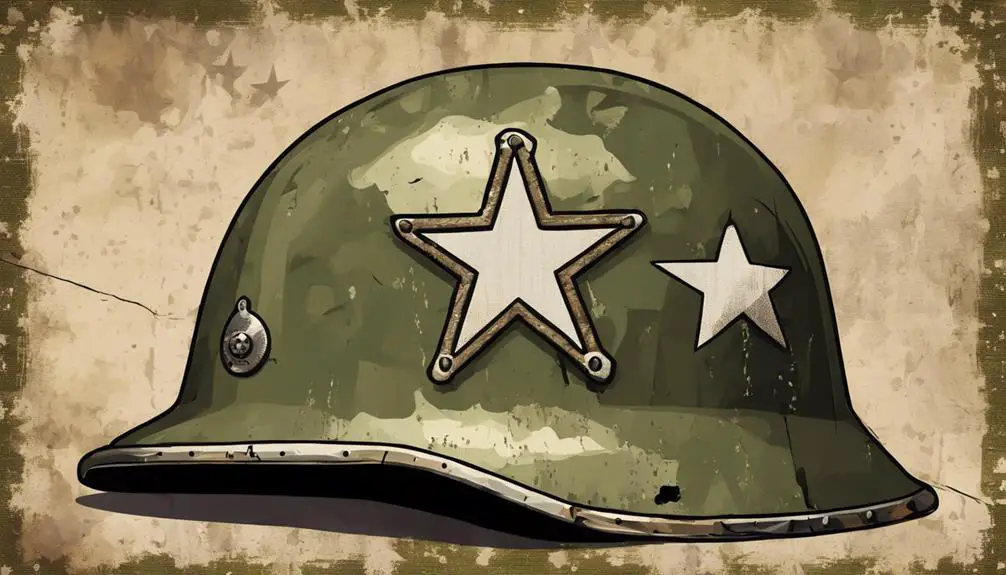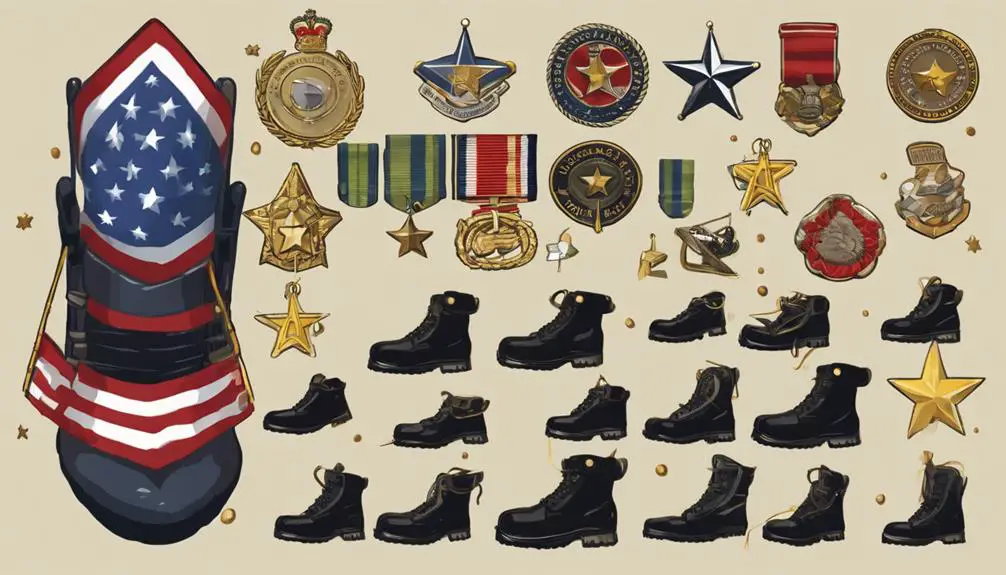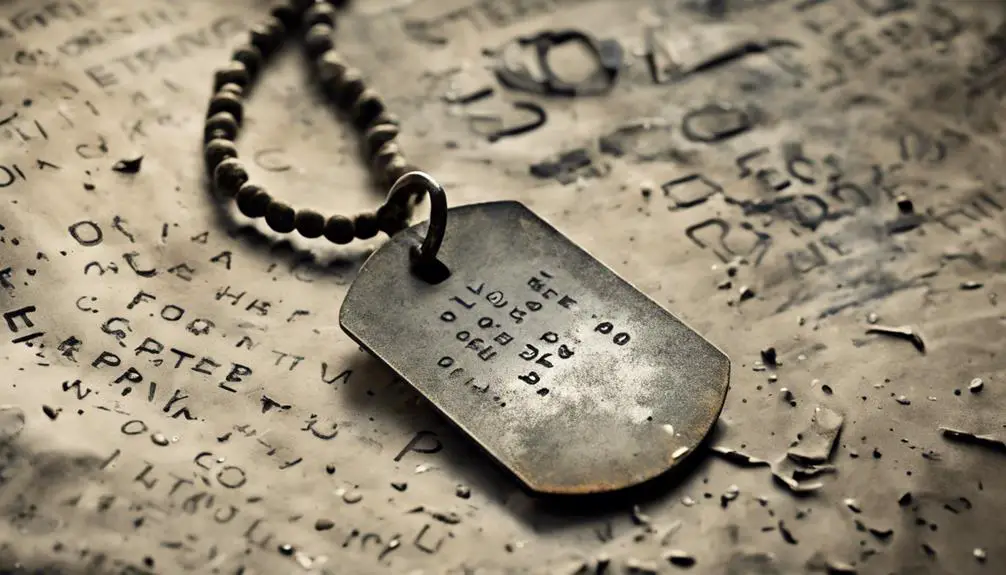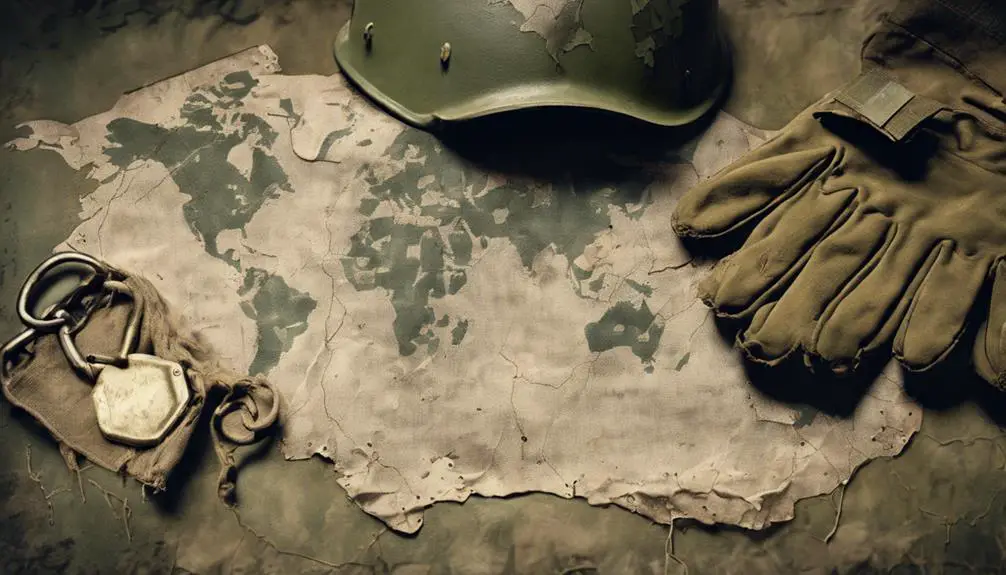You think you know crusty military slang just because you've heard of "hurry up and wait" and "chow time"? Think again, buddy! There's a whole world of vintage phrases out there, from "fix bayonets!" to "GI party", that'll make you sound like a real drill sergeant. But that's not all – military slang has been evolving since WWI, reflecting the hierarchical structure of the ranks, adapting to new tech and threats, and even creating its own dialect. Want to know the rest of the story? Keep digging, because there's more to uncover…
Crusty Classics: Timeless Slang Favorites

You've got an arsenal of trusty old phrases that never go out of style, like 'latrine duty' and 'chow time', which have been grudgingly uttered by soldiers since the dawn of military time. These crusty classics have been passed down through generations of military personnel, and it's easy to see why – they're relatable, memorable, and often hilarious.
Who can forget the infamous 'hurry up and wait' mantra, or the dreaded 'GI party' cleanup duty? These phrases have become an integral part of military culture, evoking a sense of camaraderie and shared experience among troops.
But let's not forget the forgotten phrases – the battle cries that have fallen by the wayside, like 'Fix bayonets!' or 'Sound the charge!' These relics of a bygone era now gather dust in the annals of military history, replaced by more modern expressions.
Still, there's something charming about these vintage phrases, a certain je ne sais quoi that's hard to replicate in modern military slang.
Born in the Trenches: WWI Origins
As you trudge through the muddy trenches of military history, it's hard to ignore the profound impact World War I had on the language of war, birthing a plethora of slang terms that would go on to shape the tone and tenor of military communication.
The Great War was the catalyst for a linguistic revolution, as soldiers on both sides of the conflict created a unique dialect to cope with the horrors of trench warfare. This trench lingo evolution was an essential part of the war effort, allowing soldiers to communicate quickly and efficiently in the heat of battle.
Here are three reasons why WWI was the perfect breeding ground for military slang:
- Close quarters: The cramped, dirty trenches forced soldiers to develop a shorthand language to convey complex ideas quickly.
- Chaos and adrenaline: The intense, high-stress environment of war accelerated the creation of new slang terms.
- International melting pot: Soldiers from different countries and backgrounds converged, blending their languages and creating a unique dialect.
The battle cry origins of military slang can be traced back to these trenches, where soldiers created a language that was both functional and emotional. This linguistic legacy continues to shape military communication to this day.
From Boots to Brass: Ranks and Roles

From grunts to generals, military slang has always been rank-conscious, with terms like 'boots' for new recruits and 'brass' for high-ranking officers reflecting the strict hierarchical structure of the armed forces.
You're probably wondering what's behind this obsession with ranks and roles. Well, it's simple: in the military, knowing your place in the Chain of Command is vital. It's not just about who gives orders and who takes them; it's about respect, discipline, and getting the job done.
Officer Etiquette, for instance, dictates that you address a superior officer with a crisp salute and a 'yes, sir/ma'am.' Break these rules, and you'll be doing push-ups till dawn. But when you're part of the team, you learn to appreciate the clarity that comes with a clear rank structure.
Slang of the Modern Battlefield
When you're dropped into a hot zone, you'll quickly learn that the modern battlefield has its own language – one that's constantly evolving to keep pace with the latest tech, tactics, and threats. You'll need to adapt fast, or risk getting left behind in the dust.
In this brave new world, you'll encounter a slew of slang terms that'll make your head spin.
- Tactical Comms: This refers to the secure communication networks used by troops in the field. Think encrypted radios and satphones – not exactly the kind of gear you'll find at your local Best Buy.
- Cyber Warfare: This is the new frontier of modern warfare, where hackers and cyber warriors engage in digital battles that can be just as deadly as their kinetic counterparts.
- Situational Awareness: This is military-speak for 'knowing what's going on around you.' It's the ability to stay one step ahead of the bad guys and anticipate their next move.
In this fast-paced, high-stakes environment, you'll need to stay sharp and keep your wits about you. So, buckle up, buttercup – the modern battlefield ain't no cakewalk!
Decoding Acronyms and Abbreviations

You'll quickly realize that acronyms and abbreviations are the military's love language, with a dizzying array of letters and symbols that'll leave your head spinning unless you've got a decoder ring handy. Welcome to Acronym Overload, where the slightest misstep can leave you lost in a sea of abbreviations. Fear not, dear reader, for we've got your back with our Codebreaker's Guide.
Here's a rundown of some essential military acronyms to get you started:
| Acronym | Meaning | What It's Used For |
|---|---|---|
| CO | Commanding Officer | Refers to the person in charge |
| SOP | Standard Operating Procedure | Outlines routine tasks and protocols |
| EOD | Explosive Ordnance Disposal | Deals with bomb disposal and explosives |
Mastering these abbreviations is key to deciphering the military's complex communication system. Think of it as cracking a secret code – once you've got the hang of it, you'll be speaking like a pro in no time. Just remember, in the military, brevity is key, and acronyms are the ultimate time-savers. So, buckle up and get ready to decode your way to fluency!
Slanging With Humor and Sarcasm
Every branch of the military has its own unique flavor of slang, and mastering it's essential to sounding like a seasoned vet instead of a clueless newbie. You don't want to be the one asking 'what's a 'FNG'?' (that's 'freaking new guy' for you civilians).
To fit in, you need to learn to sling some serious sarcastic jargon and witty banter.
Here are three ways to avoid getting left behind:
- Learn to speak sarcastically: When your squad leader asks you to 'hurry up and wait,' you know they're not actually concerned about your punctuality. Respond with a healthy dose of sarcasm, and you'll fit right in.
- Master the art of witty banter: When your buddy asks how your day is going, respond with something like, 'Just peachy, thanks for asking. Said no one ever.' This kind of quick wit will earn you respect and laughs.
- Embrace the absurdity: Military slang is all about embracing the ridiculous. When someone asks you to 'grab your gear and get jocked up,' just roll with it. Remember, it's all about having a good sense of humor (and a healthy dose of sarcasm).
Frequently Asked Questions
Can Military Slang Be Used in Formal Military Communications?
You're wondering if you can pepper your formal military comms with a dash of slang? Think again, soldier! When it comes to official channels, a formal tone is key.
You're not texting your buddy, you're representing the military. Save the colloquialisms for casual chat, and stick to clarity and precision in your official communications.
Are Military Slang Terms Universal Across Different Countries' Armies?
You're wondering if military slang terms are universal across different countries' armies? Sorry to burst your bubble, but the answer is a resounding 'no'.
Cross-cultural comparisons reveal that international dialects of military slang are as diverse as the countries themselves. What's 'Roger that' to you might be 'Copi, copi' to someone else.
How Do Military Slang Terms Get Officially Recognized or Documented?
You're wondering how military slang terms get officially recognized or documented? Well, it's not like they're crowned with a ceremony or anything (although, that'd be pretty cool).
Seriously, linguistic evolution plays a significant role – slang terms emerge from the trenches, spread through the ranks, and eventually get recorded in military dictionaries or historical accounts, often in the context of a specific historical context.
It's an organic, grassroots process, not some top-down decree.
Can Civilians Use Military Slang Without Being Considered Disrespectful?
You wanna use military slang without being 'that guy'? Here's the deal: appropriation concerns are real, and cultural sensitivity is key.
Just 'cause you're not in the military doesn't mean you can't use the lingo, but be respectful. Don't pretend to be something you're not.
Use it in context, don't overdo it, and don't claim you're part of the squad if you're not.
Be cool, and the cool kids will let you hang.
Are There Any Military Slang Terms That Are Specific to Certain Mos?
You're wondering if there are military slang terms specific to certain MOS? Well, let's get down to business! Yes, each Military Occupational Specialty (MOS) has its own lingo, aka MOS Lingo. And, surprise, surprise, it can vary across branches.
Branch Jargon, anyone? For instance, a Navy Corpsman's slang might differ from an Army Medic's. It's like having a secret language within a secret language.
Conclusion
You've made it through the trenches of crusty military slang! Now, go impress your friends with your newfound knowledge of 'FNGs' and 'pogey bait'.
But here's a stat that'll blow your mind: did you know that during WWII, the US military used over 2,000 slang terms? Yeah, that's a whole lotta jargon!
So, next time you're 'hanging loose' with your squad, remember, military slang is more than just a 'hooah' – it's a cultural phenomenon.







